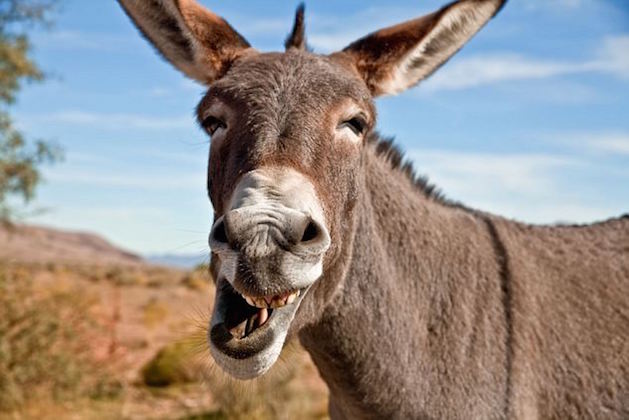
THREAD: Balaam, ‘J’, and ‘E’.
SUB-TITLE: A different take on Source Criticism.
Balaam’s story is carefully structured.
It can conveniently be divided into four main scenes, as shown below.
SUB-TITLE: A different take on Source Criticism.
Balaam’s story is carefully structured.
It can conveniently be divided into four main scenes, as shown below.

The author of Balaam’s story refers to the God of Israel by two different names/titles:
the generic name ‘God’,
and the more specifically covenantal name ‘YHWH’.
the generic name ‘God’,
and the more specifically covenantal name ‘YHWH’.
That our author’s use of these names can help us identify his ‘sources’ is a notion which has now generally been abandoned.
It can, however, be shown to add significant colour and detail to our author’s narrative.
It can, however, be shown to add significant colour and detail to our author’s narrative.
At the outset of Balaam’s story, Balaam says he’ll consult ‘YHWH’ on Balak’s behalf (22.8).
And, in the story’s first two scenes/summons (22.1–14, 22.15–20), Balaam consistently speaks to Balak about what ‘YHWH’ has said to him (22.13, 18).
And, in the story’s first two scenes/summons (22.1–14, 22.15–20), Balaam consistently speaks to Balak about what ‘YHWH’ has said to him (22.13, 18).
Balaam thereby styles himself as a man who is able to make direct contact with Israel’s God—a man who Balak will do well to hire if he wants to overcome the Israelites.
As far as our author’s narrative is concerned, however, it’s not *YHWH* who is said to appear to Balaam, but ‘God’.
That is to say, while Balaam claims to commune with ‘YHWH’ (22.8), it is ‘God’ who comes and speaks to him (22.9).
That is to say, while Balaam claims to commune with ‘YHWH’ (22.8), it is ‘God’ who comes and speaks to him (22.9).

A tension is thus created between Balaam’s perception of his situation and Balaam’s actual situation.
Balaam is portrayed as a man who doesn’t know as much about YHWH as he imagines—a man who *talks* freely about YHWH, but from whom YHWH himself remains aloof.
Balaam is portrayed as a man who doesn’t know as much about YHWH as he imagines—a man who *talks* freely about YHWH, but from whom YHWH himself remains aloof.
En route to Moab, however, things begin to change.
YHWH is no longer merely mentioned in speech.
‘YHWH’ and his ‘angel’ start to play an active role in our narrative. (That is to say, they are the subject of many of our narrative’s verbs.)
YHWH is no longer merely mentioned in speech.
‘YHWH’ and his ‘angel’ start to play an active role in our narrative. (That is to say, they are the subject of many of our narrative’s verbs.)
Nonetheless, YHWH remains aloof from Balaam.
He speaks to Balaam only by means of an angel.
And, to his embarrassment, Balaam’s donkey is more cognisant of YHWH’s activity than Balaam.
He speaks to Balaam only by means of an angel.
And, to his embarrassment, Balaam’s donkey is more cognisant of YHWH’s activity than Balaam.
Hence, by the time he reaches Moab (at the start of Scene IV), Balaam’s confidence is shot to pieces,
which is reflected in his choice of divine name.
Balaam, the seer with a hotline to YHWH (22.8, etc.), simply introduces himself as a man under the control of ‘God’ (22.38),
which is reflected in his choice of divine name.
Balaam, the seer with a hotline to YHWH (22.8, etc.), simply introduces himself as a man under the control of ‘God’ (22.38),
which is the first (and only) time he does so in his dialogues with Balak.
Balaam also approaches YHWH more cautiously than he did in Scenes I–III.
Before he seeks to make contact with YHWH, he offers up an array of sacrifices (23.1–2),
Balaam also approaches YHWH more cautiously than he did in Scenes I–III.
Before he seeks to make contact with YHWH, he offers up an array of sacrifices (23.1–2),
which he proffers as a kind of ‘right of entry’ into YHWH’s presence. (‘I’ve arranged the seven altars and I’ve offered a bull and a ram on each altar!’, he says to God: 23.4.)
And his statements about his access to YHWH are relatively modest.
And his statements about his access to YHWH are relatively modest.
‘Perhaps YHWH will come and make contact with me’, he says (23.3).
And, in response to Balaam’s more modest statement, YHWH does!
YHWH puts a ‘word’ in Balaam’s mouth, which enables him to prophesy with confidence.
And, in response to Balaam’s more modest statement, YHWH does!
YHWH puts a ‘word’ in Balaam’s mouth, which enables him to prophesy with confidence.
Yet, ironically, given the nature of Balaam’s prophecies, Balak soon starts to wish Balaam *hadn’t* managed to make contact with YHWH (cp. below).
Hence, while Balak previously wanted ‘YHWH’ to speak to Balaam (23.17), he now encourages Balaam to meet with ‘God’ (23.27) (!),
Hence, while Balak previously wanted ‘YHWH’ to speak to Balaam (23.17), he now encourages Balaam to meet with ‘God’ (23.27) (!),
though to no avail.
By YHWH’s inspiration, Balaam announces the destruction of Moab (Balak’s own nation) (24.17), at which point Balak and Balaam go their separate ways.
By YHWH’s inspiration, Balaam announces the destruction of Moab (Balak’s own nation) (24.17), at which point Balak and Balaam go their separate ways.
REFLECTION
Even if the use of divine names in Balaam’s story doesn’t shed much light on its use of sources, it does add significant colour and detail to its narrative, and contributes to its flow.
Balaam is originally spoken to by God,
then by the angel of YHWH,
Even if the use of divine names in Balaam’s story doesn’t shed much light on its use of sources, it does add significant colour and detail to its narrative, and contributes to its flow.
Balaam is originally spoken to by God,
then by the angel of YHWH,
and only at the climax of the narrative by YHWH himself,
at which point Balaam finally demonstrates some of the prophetic insight for which he is so well-known.
at which point Balaam finally demonstrates some of the prophetic insight for which he is so well-known.

Moses’s commentary on Balaam’s story is, therefore, quite apt.
‘YHWH would not listen to Balaam; instead, YHWH turned Balaam’s curse into a means to bless you, (O Israel), because YHWH, your God, loves you’ (Deut. 23).
‘YHWH would not listen to Balaam; instead, YHWH turned Balaam’s curse into a means to bless you, (O Israel), because YHWH, your God, loves you’ (Deut. 23).
BONUS CONTENT
In 2 Peter 2.15, Peter identifies Balaam’s error as the love of money,
which Peter isn’t the only person to do.
In 2 Peter 2.15, Peter identifies Balaam’s error as the love of money,
which Peter isn’t the only person to do.
The Rabbinic text Pirkei Avot 5.19 associates Balaam’s followers with עַיִן רָעָה וְרוּחַ גְּבוֹהָה וְנֶפֶשׁ רְחָבָה = ‘a stingy eye, a proud spirit, and a greedy soul’.
Peter’s reference to Balaam, however, seems more central to 2 Peter 2 than is often realised.
Peter views Balaam as a prototypical false prophet, to whom he likens the false teachers in the church.
Peter views Balaam as a prototypical false prophet, to whom he likens the false teachers in the church.
Like Balaam, Peter’s false teachers deny the master who has purchased them (2.1),
behave like brute beasts (cp. 2.12 w. the way Balaam switches places with his donkey in Scene IV insofar as he thrice refuses to do what he’s been told, angers his master, etc.),
behave like brute beasts (cp. 2.12 w. the way Balaam switches places with his donkey in Scene IV insofar as he thrice refuses to do what he’s been told, angers his master, etc.),
seek to curse those who are more glorious than they are (2.10),
provoke others to follow their sensuous example (cp. 2.2 w. Num. 25.1–2, Rev. 2.14 w. Mic. 6.5),
and ultimately get what they deserve (cp. 2.13 w. Num. 31.8).
THE END.
provoke others to follow their sensuous example (cp. 2.2 w. Num. 25.1–2, Rev. 2.14 w. Mic. 6.5),
and ultimately get what they deserve (cp. 2.13 w. Num. 31.8).
THE END.
• • •
Missing some Tweet in this thread? You can try to
force a refresh










